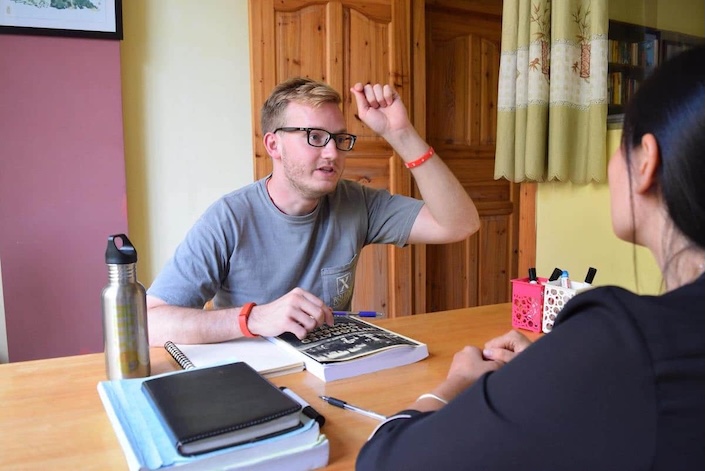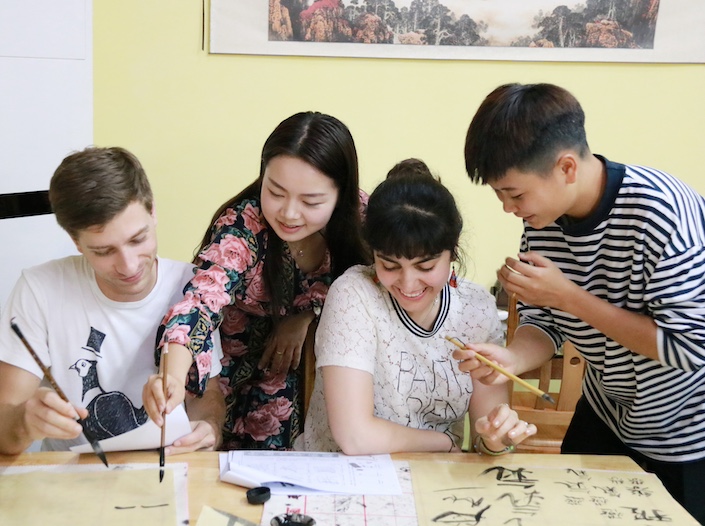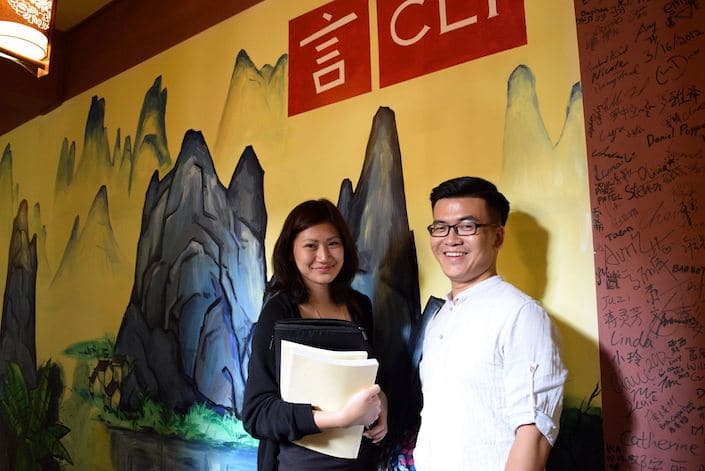3 Helpful Learning Techniques from Hacking Chinese
Learn Chinese in China or on Zoom and gain fluency in Chinese!
Join CLI and learn Chinese with your personal team of Mandarin teachers online or in person at the CLI Center in Guilin, China.


"I have seldom been taught the most important thing of all: how to learn a language."
- Olle Linge
Not "What to Learn", but "How to Learn"
A lot of emphases is placed on "what to learn" throughout one's journey to acquire Chinese language ability. Olle Linge, founder of Hacking Chinese, approaches language acquisition from a different stance; he focuses on "how to learn." We at CLI respect the wisdom that Mr. Linge has accumulated and made accessible to the public since 2010.
This blog post focuses on CLI's top 3 most powerful learning techniques which Olle discusses in-depth on Hacking Chinese. We encourage you to use these strategies on your personal journey to learn Mandarin.
1. Spaced repetition software - a.k.a. SRS
Olle makes a simple and strong case explaining why he believes in the power of spaced repetition. Here's what he has to say about his experience with the spaced repetition software Anki:
"At the moment, I’ve studied >20,000 Chinese words and if you gave me a test on all of them, I would score 90-95%. More amazing still, I only spend about 30 minutes a day maintaining vocabulary."
If you are not familiar with spaced repetition software we recommend that you check out our recent post "What is Anki?"
Wikipedia defines spaced repetition as "a learning technique that incorporates increasing intervals of time between subsequent review of previously learned material in order to exploit the psychological spacing effect."
There are several articles at Hacking Chinese about SRS. This one is a great starting point.


2. Timeboxing
Timeboxing simply means setting a limited duration of time to focus on a single task. Olle states that "timeboxing works best for tasks that are continuous." He suggests targeting durations between 10 and 15 minutes. Olle also emphasizes the importance of "creating for yourself a task you are 100% sure that you will be able to complete."
"It means that rather than saying that you’re going to review vocabulary using spaced repetition software until you’re done, you say that you’re going to work hard on reviewing characters for exactly ten minutes."
Olle provides an example for applying the timeboxing technique using Anki. If you are not yet familiar with Anki, we highly suggest you download and use it (it's free).
"I start Anki and use the built-in timeboxing settings. I think I can concentrate for fifteen minutes and I set the timer. Fifteen minutes later, I have reviewed eighty words. Then I feel happy for having achieved something, but I don’t review more words right now. Instead, I spend ten minutes to look up some characters that have been confusing me. Then I move back to Anki.
"Another fifteen minutes and eighty words pass by. I take a break, brew some tea, look out through the window for a while. Then I do another fifteen minutes. Then, seeing that I’ve already gotten through a substantial amount, I decide to play some Starcraft. In total, I complete around 200 words, feeling happy and satisfied with every step along the way."
"Without breaking a major goal like learning Chinese into several smaller parts, it will feel overwhelming, but if you break it down to bite-sized pieces, it suddenly doesn’t look all that scary."
Read Olle's full article on timeboxing.
3. Memory aids and mnemonics
Properly using memory aids and mnemonics will increase one's ability for memorization.
Hacking Chinese has many great articles elaborating on the various methods one can apply, including Remembering is a skill you can learn and Memory aids and mnemonics to enhance learning.
"The most common mistake people make when it comes to memory is to treat it as being something fixed; either you’re born with a brilliant memory or you’re not."
To prove that memory is a skill set one can develop Olle points to the story of Joshua Foer, the author of Moonwalking with Einstein, New York Times contributor, and TED speaker.
We hope you apply these learning techniques to your own journey of Chinese learning and we look forward to studying with you in China! Please leave any questions or comments in the 'Comments' section of this posting.
We welcome you to learn Chinese online with CLI’s team of amazing Chinese teachers! Follow Olle on Twitter and Facebook. Follow CLI on Twitter, Facebook, Instagram, and YouTube.
下次见!
The Chinese Language Institute (CLI) is a center for Chinese language and cultural studies based in Guilin, China. Founded in 2009, CLI has hosted over 5,000 students from more than 50 countries and maintains a 4.95 out of 5.00 rating on GoOverseas. CLI's team includes Chinese language educators, program managers, and China specialists holding advanced degrees in Chinese studies, teaching Chinese as a foreign language, education, and related fields. Articles published under The CLI Team draw on the collective expertise of this group, informed by years of experience designing and delivering Chinese language immersion programs in Guilin and across China.












